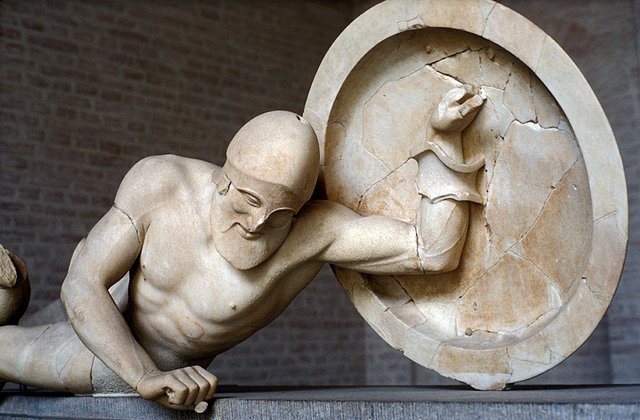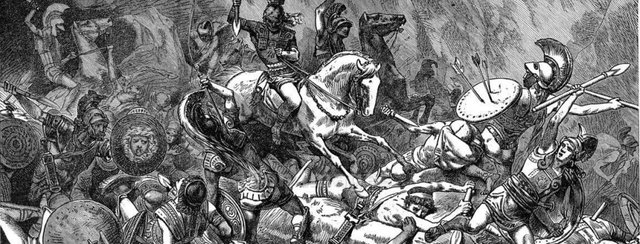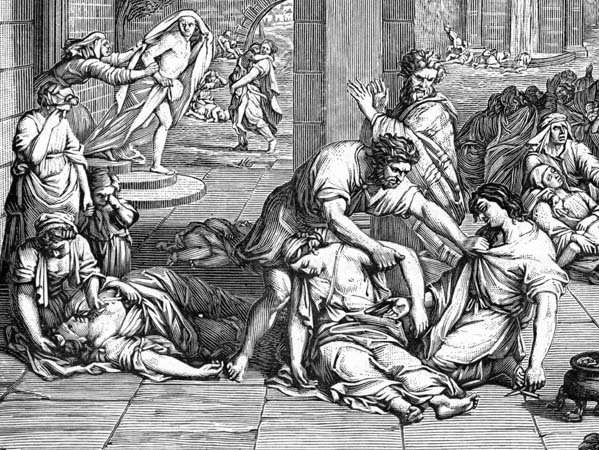The Peloponnesian War - Power and Disease [Part 1]
After suffering tremendous losses during Greece's fight in the Greco-Persian Wars, immediate action was needed in order to recover and rebuild. Athens, therefore, came up with the idea of creating the Delian League. It was comprised of volunteering city-states who all paid, in either currency or valuable talents, in order to join. The purpose of this alliance was to prevent any more Persian advancements in the future, and to recapture Greek territory.

This all sounds great on paper but it quickly became an issue for those other city-states. They soon realized that once they were in the league, they were not allowed out. Plus, all of the money they provided and continued to provide, now belonged to Athens, which made it incredibly wealthy and powerful once they rebuilt. Sparta, naturally, was having none of it since it refused to join and was growing concerned with Athens' behavior. In fact, the Athenians grew so arrogant that they began to conquer the neighboring city-states within the league. They continued to do this until they got too close to Sparta's allied territories. This caused more conflict which eventually erupted into all out war which Sparta declared in 431 B.C.
Why did it happen?
Athens continued to absorb colonies and city-states, leaving Sparta nearly alone and quite small in comparison to the behemoth Athens was becoming.
General distrust. After a terrible earthquake it suffered from, Sparta sent messengers to Athens asking for help to keep the helots from uprising. Athens kindly sent 4,000 soldiers but quickly grew nervous of the potential threat Sparta could be, and called them back. Sparta was humiliated, and this only served to fuel their distrust of each other.

Periclean Strategy
Time for war in Greece, and much of the ancient world, was limited due to the fact that soldiers themselves farmed and provided much of the food for their lands. So in Athens, this strategy was implemented by Pericles. During siege season, all Athenians were pulled into the city walls forced to stay until it ended. The idea was that, if they couldn't fight, they couldn't possibly lose. The Spartans did everything they could to bring them out, like taunting, peeing on the walls, and desecrating their land. However furious the citizens grew towards this, Pericles kept the gates closed. This strategy worked well, until it didn't.
The very city of Athens could only house 80,000 people, and now 200,000 were packed within the walls due to the strategy. Unlike today, it was the poorer citizens living in the city, while the aristocrats lived outside the walls because of their farms. So as time grew during this season, waste piled up quickly, aristocrats were homeless, and soon people began to fall ill with disease.

In May of 430 B.C. a plague erupted in Athens and, naturally, Sparta fled once news spread. A third to a fourth of people that got the disease died, the rest were damaged beyond repair. Eventually, there were so many bodies that they had no idea what to do, so they began burning them and throwing them over the walls. Pericles himself died a year later from it. Recently it has actually been suggested that it was Ebola. Even a third of their military died and, therefore, Athenians were reduced to raiding nearby towns for food and soldiers. Who the Athenians were changed after this plague.
I always want to know more about Ancient Greece outside my own topic but it's such a huge area I never know where to start. This post gave me an excellent overview; for example, I'd never heard of that plague in Athens. Thanks. Resteemed.
meep
Thank you for your support!
Great little piece of history, thanks,
I really love history!